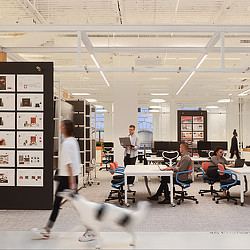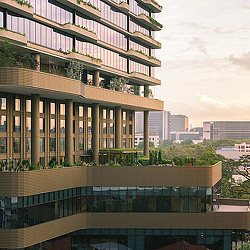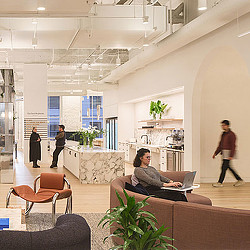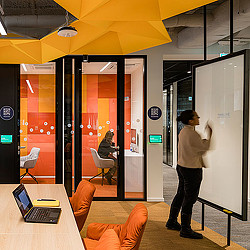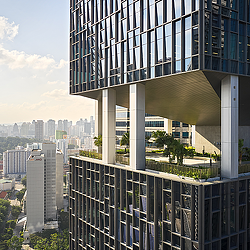Singapore’s Flexi-Time Regulations
Are a Step Towards Building a More Sustainable Work Culture
New government regulations are shifting to meet the evolving needs of the country’s workforce.
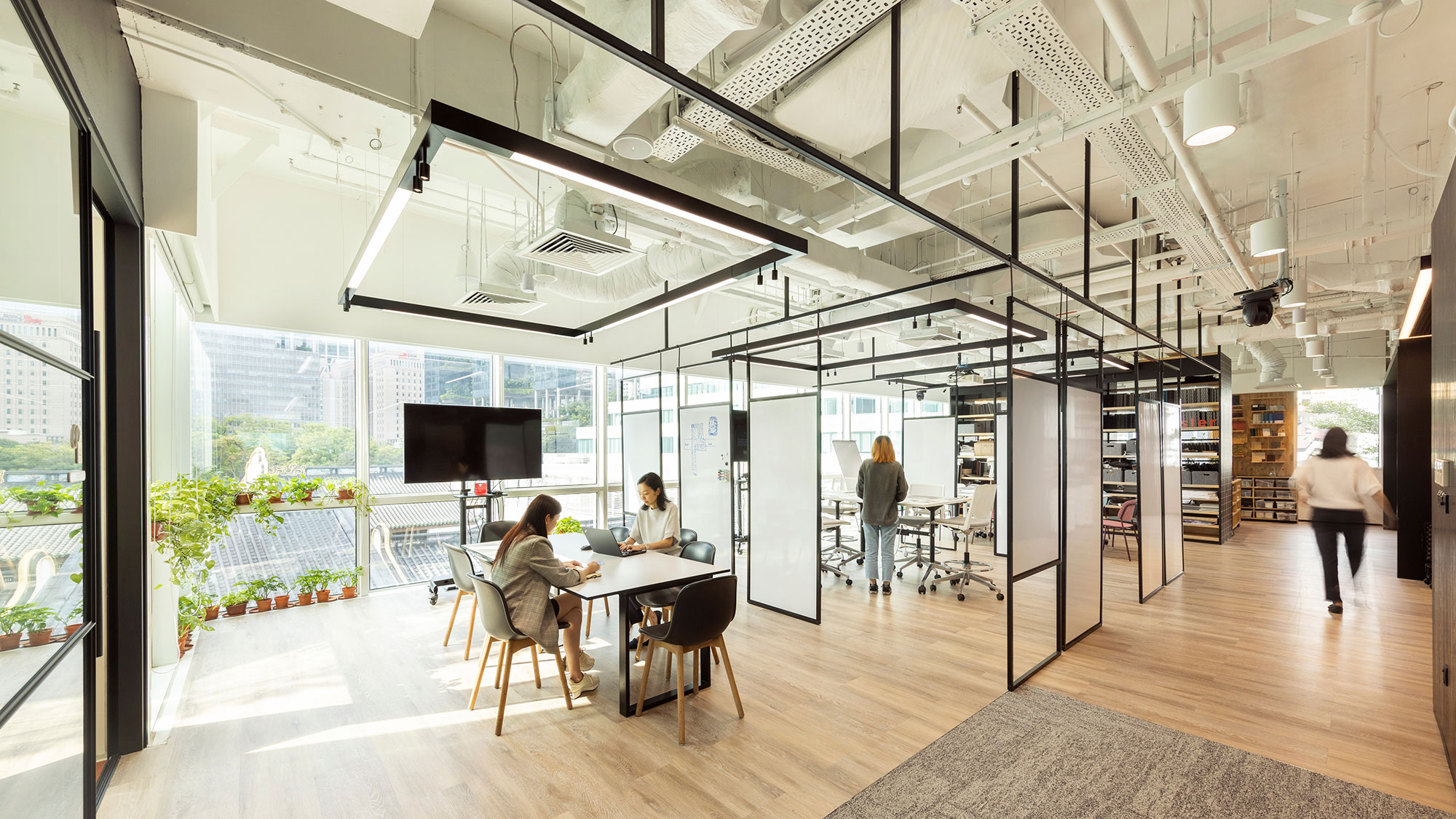
“Singapore Orders All Employers to Consider Workers’ Flexi-Time Requests.” This was the Bloomberg headline in Singapore on April 16, 2024. The article reports that starting December 1, all employers in Singapore will be required to fairly consider flexible work requests, according to new regulations. These rules apply to companies of all sizes across various industries. The flexible work arrangements covered by these regulations include telecommuting, flexible working hours, and other similar arrangements that enable employees to better manage their professional and personal commitments.
As an architect and sociologist who works with clients on transformation projects primarily in the workplace sector, I was thrilled by this headline. These regulations are a significant step towards building a more sustainable and supportive work culture in Singapore.
The proliferation of remote work, accelerated by the COVID-19 pandemic, has demonstrated the viability of decentralized work models, and necessitated the reevaluation of organizational management practices. Moreover, the gig economy is redefining the nature of employment, giving rise to a workforce that values flexibility and autonomy over traditional employment models. According to Bloomberg, Singapore’s move is in line with other countries, including Ireland and the U.K., where governments require businesses to consider flexi-work requests.
This new regulation is exactly the kind of government policy that learnings from the pandemic should drive. It reflects Singapore’s commitment to creating a more inclusive and adaptable work environment that caters to the evolving needs of its workforce. By mandating fair consideration of flexible work requests, Singapore is promoting employee well-being and productivity, while also ensuring that businesses remain competitive.
Here are three long-term areas of impact that this shift will bring:
1. Accommodating a greying workforce
The government can expect that flexible work arrangements in Asia, particularly in Singapore, Japan, and China, will allow aging populations to stay in the workforce longer on their own terms. Our workforce is aging faster than ever before. Workers over age 50 will become the largest segment of the workforce, according to Singapore’s Ministry of Manpower. The growing trend of older adults in the workforce is aided by various government initiatives that aim to create an inclusive work environment for an aging population.
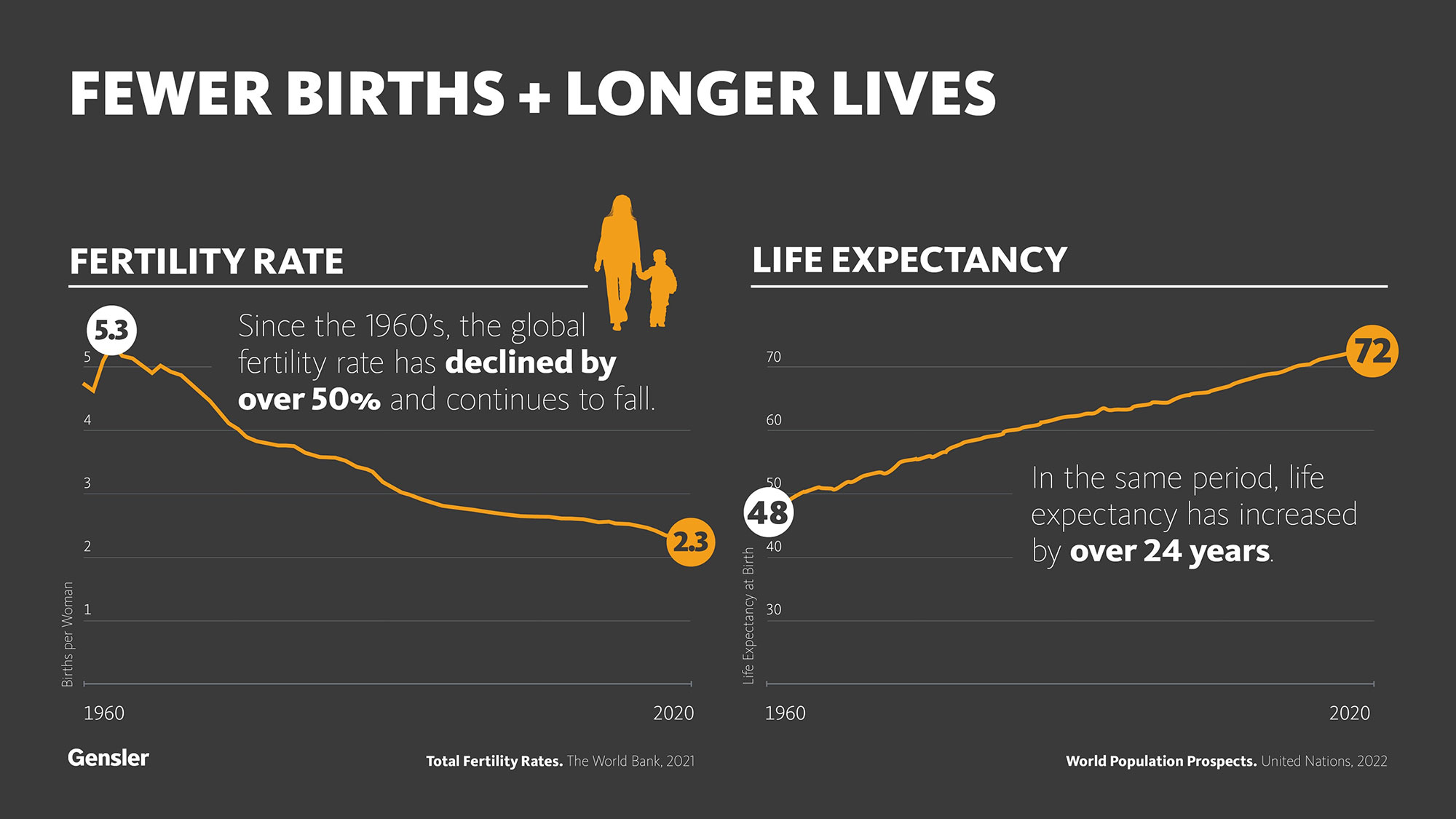
Globally, 150 million jobs will be transferred to people over 55 by 2030. That’s about the size of the entire U.S. workforce, and it’s just six years away. So even short-term, if we want to plan for the next generation of the workforce, we shouldn’t just be thinking 20-something, we should be thinking 60-something, too.
2. Designing higher performing workplaces
Flexible work arrangements will only drive the need for better, higher performing workplaces and work cultures, so employees appreciate coming to the workplace. Now that people know what they’re able to achieve outside the workplace, expecting them to show up without a value proposition is meaningless.
Our Gensler Research Institute data shows that physical office spaces retain significance as hubs for collaboration, creativity, and company culture. For most new workplaces built in the last three years, the focus has really been to create a place where employees feel connected to one another and effective as a team. And our latest research data shows that working in high-performing workplaces positively impact individual, team, and organizational outcome up to three times more than low-performing workplaces.
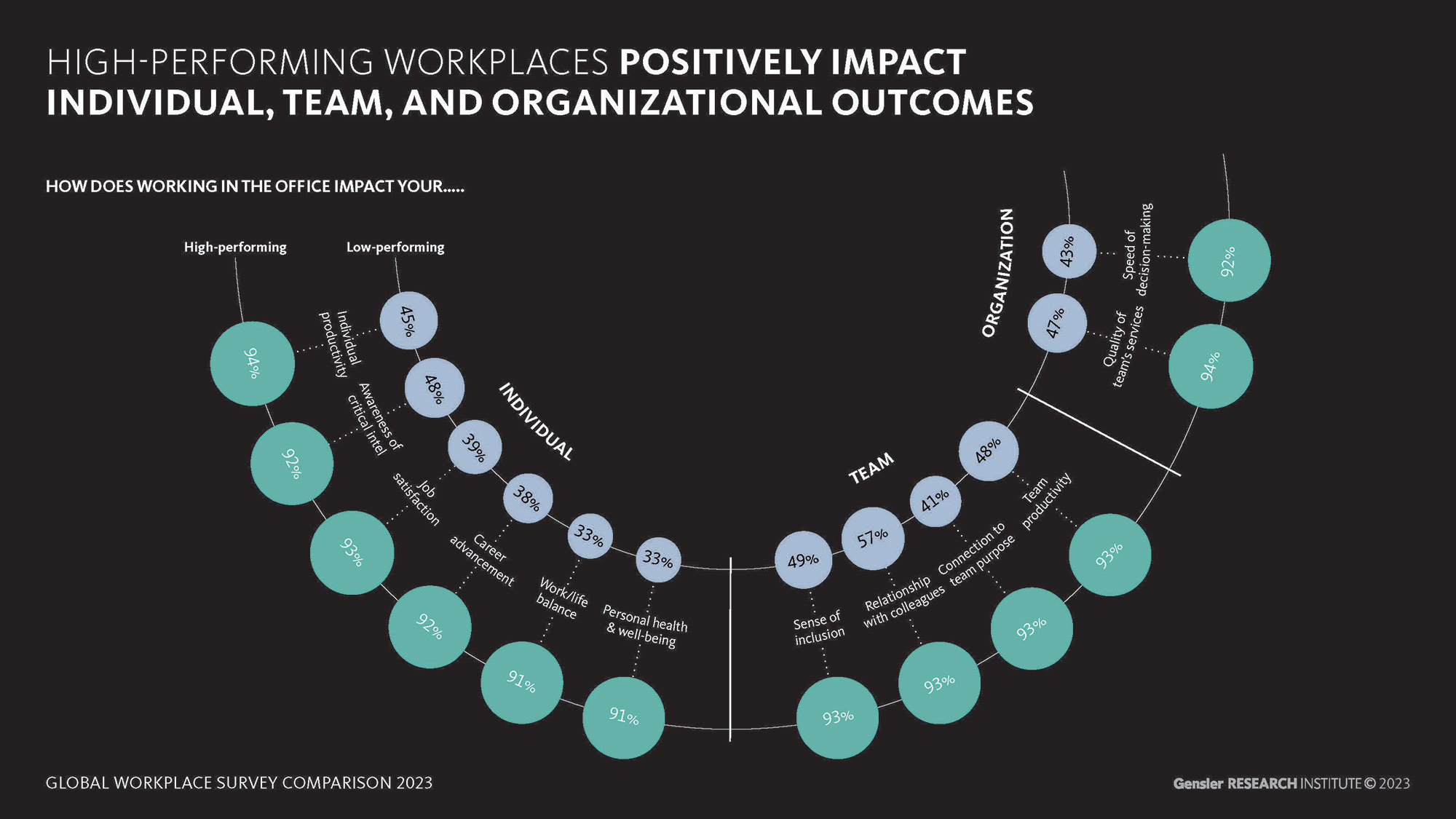
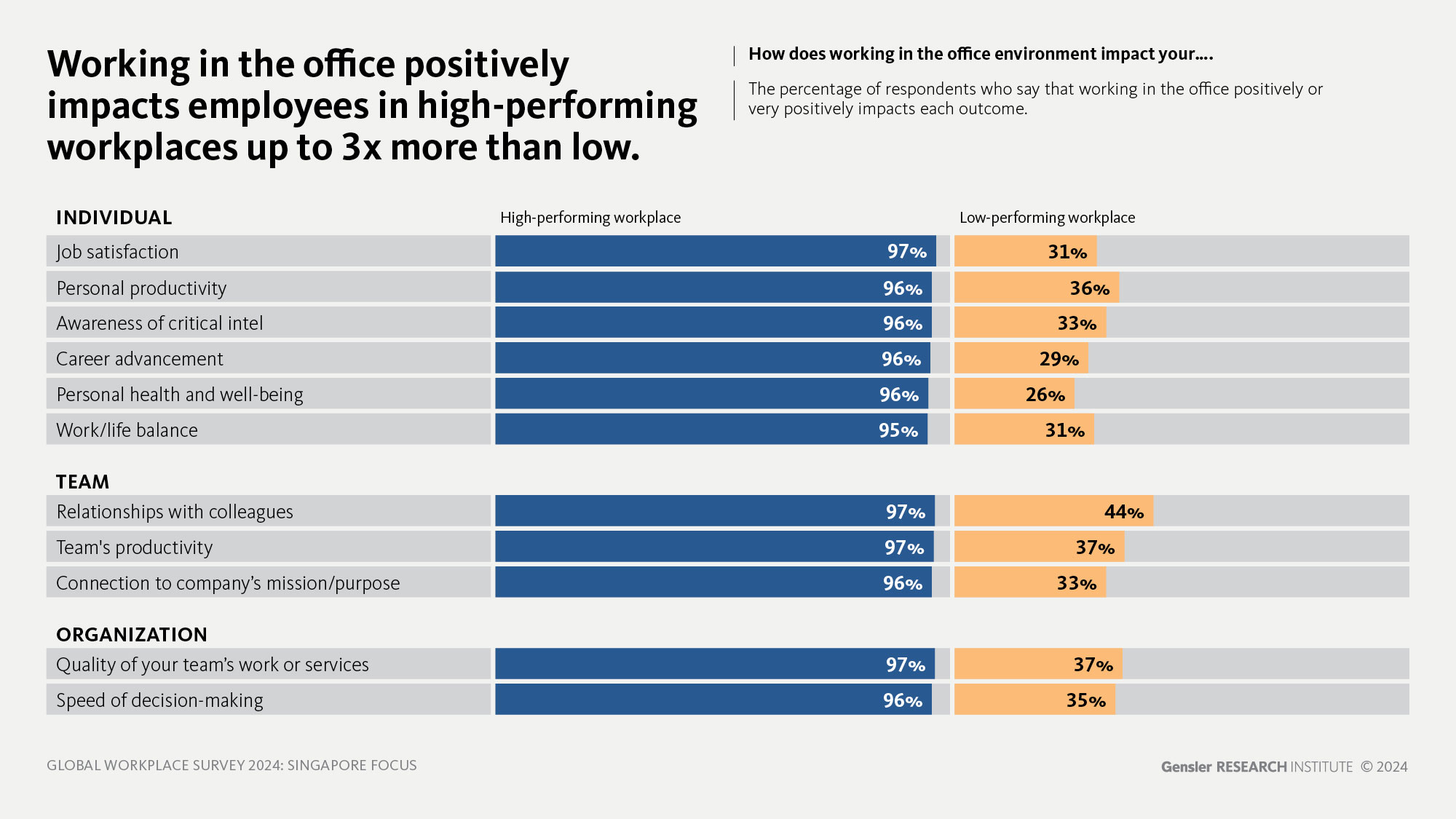
According to Gensler’s 2024 Global Workplace Survey, workers in Singapore spend about half of their time at the office (52%), 16% working from home, and 32% of a typical week working in other locations, such as coworking spaces (10%), client/customer sites (9%), business travel (7%), and third places (6%).
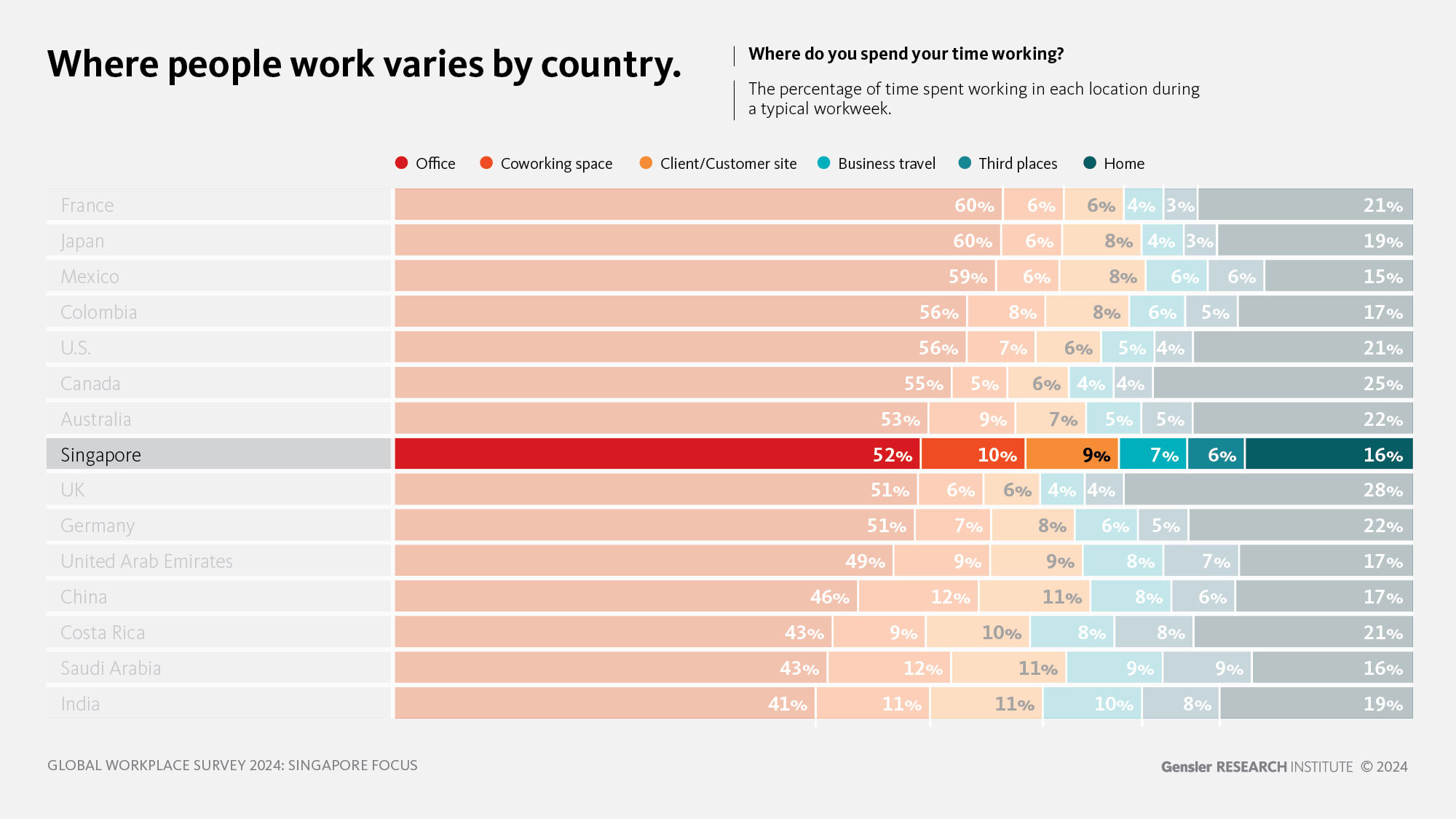
3. Building social capital in our communities
In 2021 and 2022, we saw a lot of discussion about how the work-from-home period eroded social capital at work, and research indicates that workers who recently joined the workforce are reporting fewer friendships and loneliness at work in the Asia-Pacific region.
However, building social capital at work needs to be balanced with contact and caring outside of work. Flexible work policies begin to respect social capital needs in other areas of life that create collective value from social networks, relationships, and interactions within a community or society.
According to Gensler’s 2024 Global Workplace Survey, workers in Singapore spend 23% working with others in-person, 13% working with others virtually, 11% learning, and 12% socializing, spending the balance of a typical work week working alone (42%).
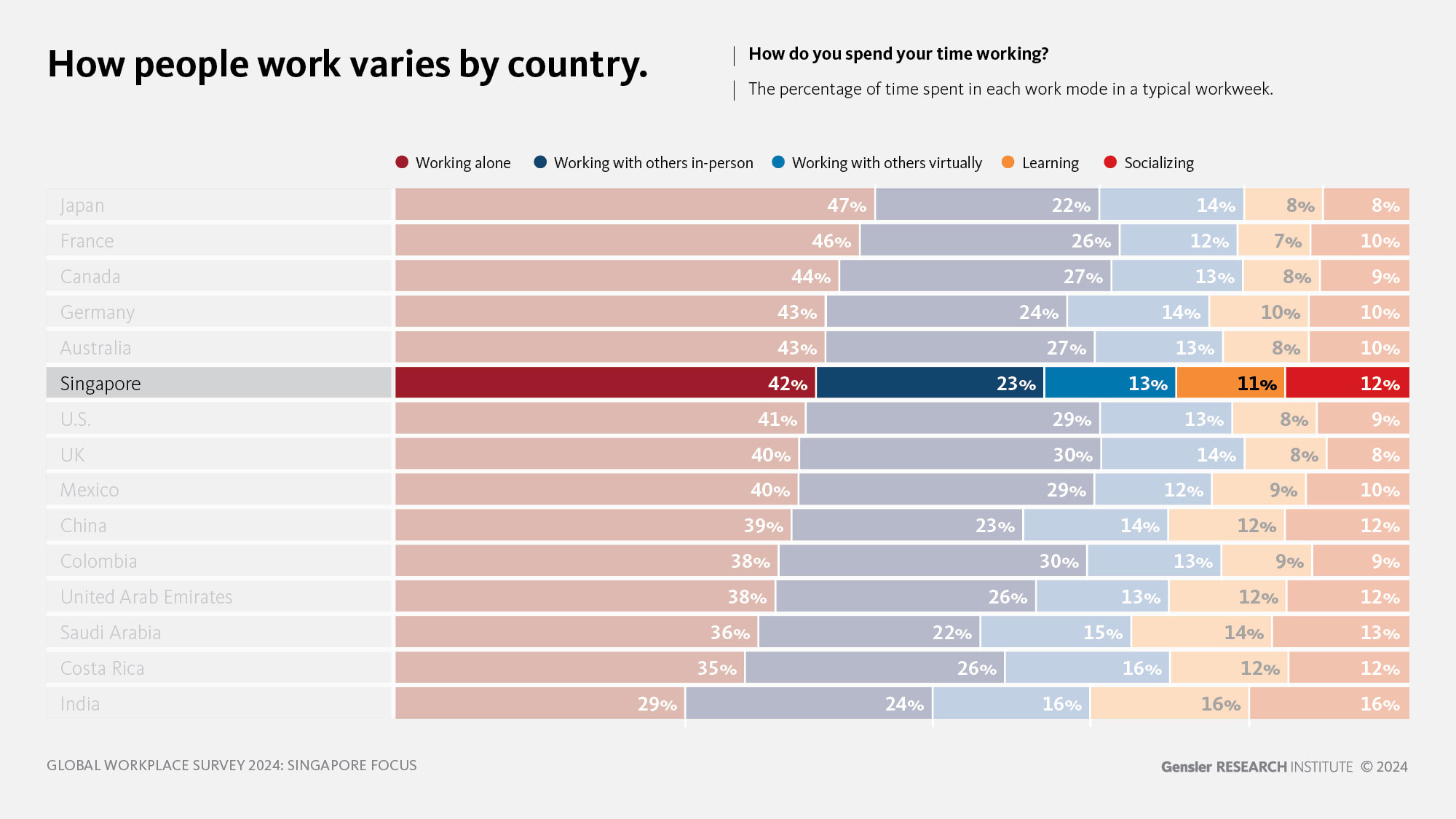
We must recognize that for many in office jobs, the COVID-19 pandemic created a pause to reflect and reconnect with other aspects of life that allow nourishment social communities outside of the corporation.
As Singapore’s government takes steps to embrace flexible work arrangements, we believe this shift will spur opportunities to accommodate a greying workforce, design higher-performing workplaces, and build social capital in our communities. These changes will not only help attract and retain talent, but will also help create a more sustainable, inclusive work culture.
For media inquiries, email .

